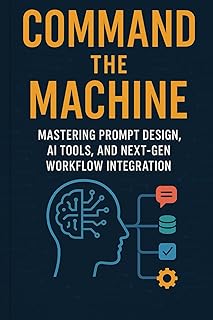The UND School of Medicine & Health Sciences Teaching, Learning, and Scholarship (TLAS) team is hosting a virtual faculty development session on October 1st. The session, titled “AI is here, now what? Getting started (safely),” will be presented by SMHS Associate Dean for Teaching and Learning, Richard Van Eck, Ph.D., from noon to 1 p.m. via Zoom.
Artificial Intelligence (AI) is becoming increasingly prevalent in various sectors, including healthcare and education. The session aims to address the opportunities and challenges associated with AI, emphasizing the importance of understanding its implications. Participants will learn about the UND SMHS AI Policy, ensuring the secure use of AI tools, and leveraging AI for teaching and productivity.
The Teaching, Learning, and Scholarship (TLAS) team at SMHS regularly organizes faculty development sessions to keep the medical and health education community informed about emerging trends. These sessions are open to all and cover a range of relevant topics. Previous sessions can be accessed on the SMHS website for further learning.
For those interested in exploring instructional design further, TLAS offers consultations and workshops to enhance teaching practices. Additionally, educators can access a repository of online resources to support their teaching and learning endeavors. The faculty development sessions provide valuable insights and strategies to enhance educational practices.
Richard Van Eck and Adrienne Salentiny, contacts for the faculty development session, are available to address any queries or suggestions for future meeting topics. Their expertise and guidance contribute to the success of the sessions, ensuring that participants gain actionable insights to improve their teaching methods.
As the landscape of education continues to evolve, embracing technological advancements like AI becomes imperative. The integration of AI tools in teaching can revolutionize the learning experience, offering innovative solutions to enhance student engagement and academic outcomes.
By staying informed about AI policies and best practices, educators can navigate the evolving digital landscape with confidence. The faculty development sessions serve as a platform for ongoing professional development, equipping educators with the knowledge and skills needed to adapt to changing educational paradigms.
As the demand for effective instructional design grows, educators must continuously refine their teaching strategies to meet the needs of diverse learners. Leveraging AI as a teaching tool presents exciting opportunities to personalize learning experiences and drive educational outcomes.
In conclusion, the upcoming faculty development session on AI underscores the importance of embracing technology responsibly in educational settings. By fostering a culture of innovation and continuous learning, educators can harness the power of AI to create engaging and impactful learning environments.
📰 Related Articles
- Reebok Launches Smart Eyewear Line with AI Integration for Active Lifestyles
- QR Code Evolution: AI Integration Driving Global Usage Surge
- Paraplanners Navigate AI Integration in Financial Advisory Evolution
- MainCode Pioneers Sovereign AI Development in Australia
- Leaders Urged to Prioritize Employee Upskilling Amid AI Integration






